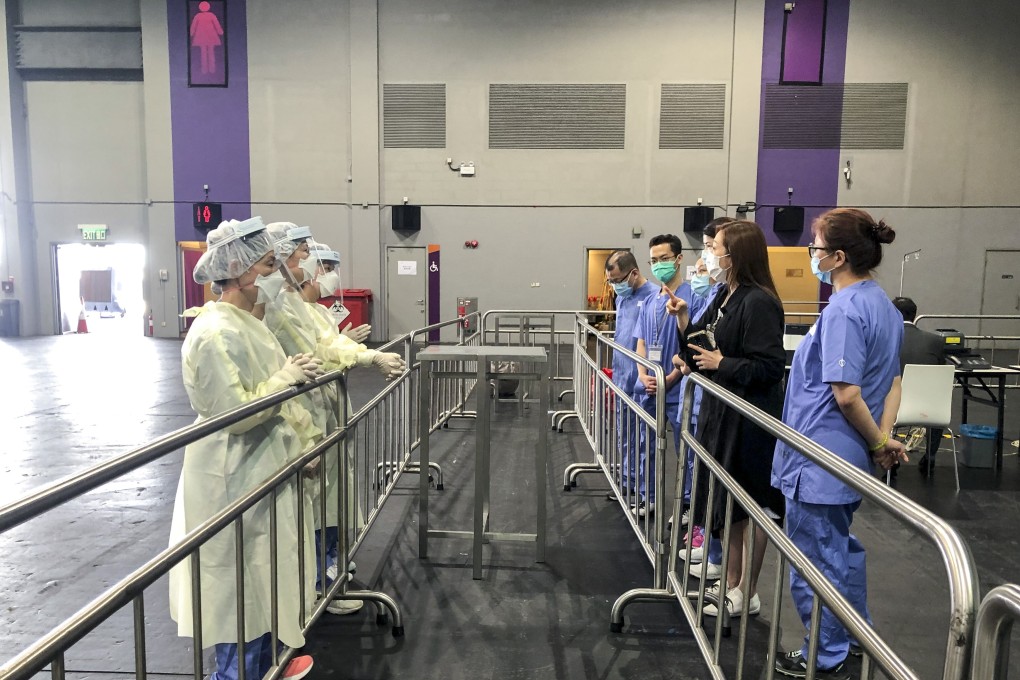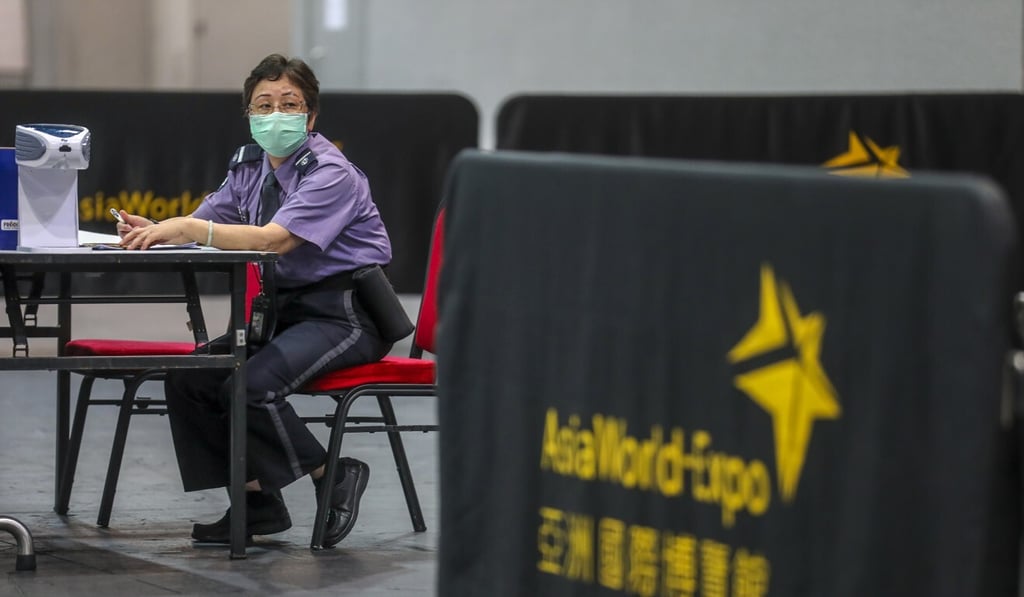Advertisement
Race to set up coronavirus screening centre near Hong Kong airport pays off, easing burden on public hospitals
- Travellers among 1,400 tested at AsiaWorld-Expo, 104 found to be infected
- Health Authority doctors, nurses among team that converted expo hall into test centre
Reading Time:3 minutes
Why you can trust SCMP

Dr Vincent Cheng Chi-chung recalls the exact moment he received the Health Authority text message on his mobile phone, at 7.45pm on March 18.
The infection control officer was among about 100 health care personnel and other staff called up to perform what seemed to be a “mission impossible” – they had less than 48 hours to convert a 60,000 sq ft exhibition hall at the AsiaWorld-Expo into a temporary testing facility for Covid-19.

Advertisement
The temporary centre was needed to screen all travellers from overseas who arrived with symptoms at the nearby Hong Kong International Airport.

Advertisement
At the time the city was recording dozens of new Covid-19 cases daily, and bracing itself for a surge in imported and community infections.
Advertisement
Select Voice
Select Speed
1.00x